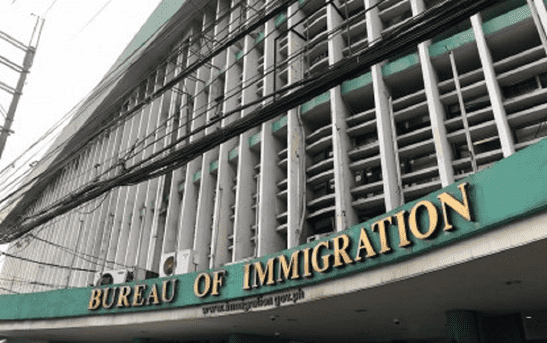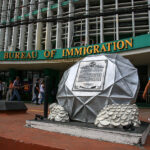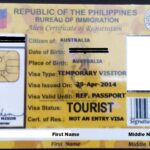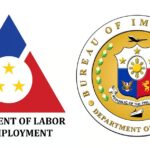The Philippines is a thriving hub for foreign professionals and businesses, welcoming skilled talent from across the globe. However, working in the Philippines as a foreigner requires navigating a well-defined legal and regulatory framework, with precise eligibility conditions, permit processes, and compliance standards.
Types of Work Visas and Permits in the Philippines
Foreign nationals planning to work in the Philippines must secure the appropriate visa and permit related to the nature and duration of their employment or business activities. The country offers several routes for both short-term and long-term work, all overseen by the Bureau of Immigration (BI) and the Department of Labor and Employment (DOLE).
Key visa options include:
- 9(G) Pre-arranged Employment Visa
- 9(D) Treaty Trader’s Visa
- 47(A)(2) Special Non-Immigrant Visa (PEZA Visa)
- Temporary Visitor’s Visa (9A) with business endorsement
The 9(G) Pre-arranged Employment Visa: Main Path for Long-Term Employment
The 9(G) pre-arranged employment visa is the most widely used for foreign nationals seeking regular, long-term employment. It’s designed for specialized positions where local talent is scarce, enabling Philippine companies to hire foreign workers with specific skills, qualifications, or experience.
Essential Features
- Employer sponsorship is required; the visa is tied to the sponsoring company and ceases when employment ends.
- Must acquire an Alien Employment Permit (AEP) first; this serves as proof that the employer genuinely requires the foreign worker.
- Valid for up to three years, subject to renewal as long as employment continues and the AEP remains valid.
Key Documents
Applicants must collect and submit:
- Notarized certification showing the ratio of foreign to Filipino employees
- 9(G) visa application form
- Certified true copy of the AEP
- Employer’s SEC certification, employment contract, Articles of Incorporation
- Original DOLE publication (newspaper clipping) about the AEP application
- Alien Certificate of Registration (ACR I-Card)
- BI clearance certificate
- Passport and supporting documents
The application process often takes 2-4 months, including 2-3 weeks for the AEP alone.
The Alien Employment Permit (AEP)
For most foreigners, securing the AEP is the first step in legally working in the Philippines. DOLE issues the permit once the employer proves that the role cannot be filled locally.
Key Compliance Points
- Valid for up to three years or per contract, with extensions possible
- A new AEP is needed if the employee changes position
- Some foreign nationals are exempt (government officials, accredited POEA representatives, diplomats, and certain long-term visa holders)
Both the employer and the employee must monitor and renew the AEP to maintain a valid status throughout employment.
Other Work Visas in the Philippines
9(D) Treaty Trader’s Visa
For nationals from countries with bilateral trade agreements (US, Japan, Germany, South Korea), the 9(D) Treaty Trader’s Visa applies. It’s valid for those who:
- Are involved in substantial trade between their home country and the Philippines (minimum USD 120,000 investment)
- Share nationality with their employer or the major shareholder
- Hold supervisor or executive roles
- Intend to depart after completion of the employment contract
47(A)(2) Special Non-Immigrant Visa (PEZA/BOI Visa)
The 47(A)(2) visa is for foreign nationals working at Board of Investments (BOI) or Philippine Economic Zone Authority (PEZA) registered businesses or regional headquarters:
- Limited to about 5% of the company workforce, with exceptions for critical technical roles
- Valid for managerial, technical, supervisory, and advisory positions
- The application process requires company endorsement and proof of eligibility
Short-Term and Temporary Business-Related Permits
Foreign nationals visiting for business purposes typically enter on a 9(A) Temporary Visitor’s Visa; for short assignments, they should secure a Special Work Permit (SWP) or a Provisional Work Permit (PWP) if transitioning to longer-term roles.
Work Permits: SWP, PWP, and Key Exemptions
In addition to visas, foreign employees must obtain the correct work permit:
- Alien Employment Permit (AEP): For long-term employment (one to five years, renewable)
- Special Work Permit (SWP): For assignments up to six months without affecting tourist status
- Provisional Work Permit (PWP): Allows work to begin while the long-term visa is pending
Exemptions
Certain foreigners are exempt from securing some work permits, such as:
- Corporate board members with voting rights (no company equity)
- Diplomats or foreign accredited officials
- POEA-registered foreign company representatives interviewing applicants
- Officers, employees, and spouses of international organizations
- Foreigners teaching or researching under collaboration agreements with the government
Practical Compliance Considerations for Employers and Foreign Employees
Both employers and foreign staff must observe the following for lawful employment continuity:
- The visa status is employer-specific; changing jobs requires new visa/permit applications.
- Visa validity and AEP cannot exceed the employment contract period.
- Employers must report to BI if an employee’s status changes (transfer, termination).
- Employees must not work outside the scope defined by their contract and visa.
- Documentation (company registration, contracts, personal records) must be up to date and accurately filed.
Failure to comply can lead to visa revocation, fines, and blacklisting, impacting ongoing and future employment prospects.
Application and Renewal Timelines
Initiate the visa and AEP processes well before intended arrival:
- AEP Processing: About 2-3 weeks if all documents are in order
- Work Visa Processing: About two to four months for employment visas, shorter for some permits
- Renewals: Should be started as early as possible, especially if continuing employment
Delays often stem from incomplete paperwork, a lack of publication proof for the AEP, or misfiled employer documents.
Common Issues and Pitfalls
Foreign nationals and companies sometimes face obstacles such as:
- Submitting incomplete or non-compliant documentation
- Outdated company permits or registration
- Failing to renew the AEP or visa before expiry
- Attempting to work outside the employer or role authorized by the permit
- Not appointing sponsors or not reporting changes in employment status
Mitigate these issues by working with professional advisors and by maintaining rigorous document and contract management.
Final Thoughts
The Philippines offers abundant professional and business opportunities for foreign nationals, but only through full compliance with local visa and work permit regulations. The 9(G) pre-arranged employment visa is the primary pathway for long-term employees, supported by the critical AEP. Other visas, like the 9(D) treaty trader and 47(A)(2) PEZA/BOI visas, cater to specialized industries and strategic partnerships. Employers and employees must exercise diligence in preparing documentation, reporting changes, and renewing status to ensure a legal and productive work experience.
Need Assistance for Working in the Philippines as a Foreigner?
Work Visa Philippines offers support for end-to-end visa and permit processing, from AEP documents to work visa coordination and renewal. Our expert immigration advisors help employees and companies navigate compliance, avoiding costly delays or mistakes.
Contact us for personalized advice and efficient service:
- Contact Us Here
- Fill Out the Form Below
- Call us at +63 (02) 8540-9623





